Would you like to receive this newsletter in your email inbox? Sign up for a free AAG account now and select AAG Newsletter under your communication preferences.
PRESIDENT’S COLUMN
The Pandemic, the Scale of ‘We’, and the Fortress-Individual: Geographies of Responsibility

By Emily Yeh
Last year, now-Past President Amy Lobben titled her first newsletter column, “The Spatial Scale of ‘We,’” to reflect on the rapid shrinking of who counts as ‘we’ “to a remarkably small spatial and social scale” in the context of the COVID-19 pandemic. Her phrase has resonated with me over the past few weeks as I consider the global pandemic that is soon to enter its third year.
Continue Reading.
PERSPECTIVES
Advanced Placement Human Geography: Time for a Reappraisal?
By Michael Solem, Richard G. Boehm, and Joann Zadrozny
The conversation we need to have about AP Human Geography requires a shift in perspective from growth metrics to quality metrics, so that we begin to acquire a clear understanding of the things that really matter: the extent that APHG is effective for the students who participate in the course and whether APHG is delivering on its potential for geography in higher education.
Continue Reading.
ANNUAL MEETING
Now Recruiting: Employers and Job Seekers for AAG’s Virtual Career Fair
 Are you searching for that perfect job candidate? Are you looking to land a great internship or find your dream job? For the first time, the AAG will be holding a virtual career fair during the Annual Meeting. Employers and Job Seekers will have the opportunity to connect on February 28th from 12-3 PM ET in private, one-on-one conversations.
Are you searching for that perfect job candidate? Are you looking to land a great internship or find your dream job? For the first time, the AAG will be holding a virtual career fair during the Annual Meeting. Employers and Job Seekers will have the opportunity to connect on February 28th from 12-3 PM ET in private, one-on-one conversations.
For companies and organizations, spots are filling up quickly, so reserve your booth today.
For Job Seekers, register today for the AAG Virtual Career Fair.
Be a Career Mentor at the 2022 AAG Annual Meeting
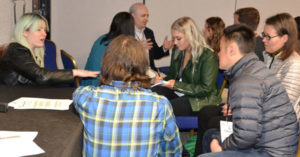
The AAG seeks professional geographers representing the business, government, nonprofit and academic sectors to serve as volunteer “Career Mentors” during the 2022 AAG Annual Meeting. Career mentoring provides an open forum for students and job seekers to receive one-on-one and small-group consultation about geography careers in a variety of industries and employment sectors. Sessions will be held each morning from 9:40-11:00 ET, February 25-February 28, 2021. Please note that the sessions will be in-person only.
For additional questions and to volunteer, please contact Mark Revell at the AAG mrevell [at] aag [dot] org as soon as possible, and no later than January 31, 2022.
Register Today for the 2022 AAG Annual Meeting
Mark your calendar for the AAG Annual Meeting in the Big Apple, February 25 – March 1, 2022. The hybrid meeting will take place both online and at the NY Hilton Midtown and the Sheraton New York Times Square Hotel. While paper abstract submission is closed, AAG will accept abstracts for poster presentations until January 6, 2022. We look forward to seeing you in New York City!
PUBLICATIONS
NEW GeoHumanities Issue Alert: Articles with topics ranging from festivals to urban change to the petrochemical industrial complex
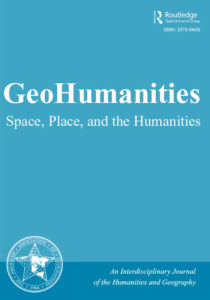 The most recent issue of GeoHumanities has been published online (Volume 7, Issue 2, December 2021) with 17 new research articles and creative pieces on subjects within geography. Topics in this issue include sand’s effects on settlement in Hong Kong; transnational agrarian movements; migration child detention; drawing as an ethno-political practice; Roden Crater; the depiction of bodies on maps; processing biological and geologic time; and decolonizing geology. Articles also explore mediums such as vignettes; poetry; photo essays; and film. Authors are from a variety of research institutions including Cardiff University; Dartmouth College; University of Cambridge; University of Southern California; and Michigan Technological University.
The most recent issue of GeoHumanities has been published online (Volume 7, Issue 2, December 2021) with 17 new research articles and creative pieces on subjects within geography. Topics in this issue include sand’s effects on settlement in Hong Kong; transnational agrarian movements; migration child detention; drawing as an ethno-political practice; Roden Crater; the depiction of bodies on maps; processing biological and geologic time; and decolonizing geology. Articles also explore mediums such as vignettes; poetry; photo essays; and film. Authors are from a variety of research institutions including Cardiff University; Dartmouth College; University of Cambridge; University of Southern California; and Michigan Technological University.
All AAG members have full online access to all issues of GeoHumanities through the Members Only page. In every issue, the editors choose one article to make freely available. In this issue you can read Normalized Alterity: Visualizing Black Spatial Humanities by Darius Scott for free.
Questions about GeoHumanities? Contact geohumanities [at] aag [dot] org.
NEW Annals Alert: Articles with topics ranging from river restoration to the political ecology of volcanic sand mining, from dust events in Iran to high Arctic coastal systems
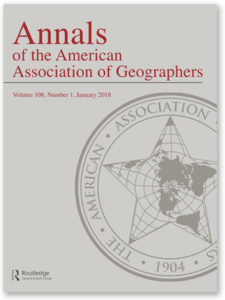
The most recent issue of the Annals of the American Association of Geographers has been published online (Volume 112, Issue 1) with 15 new articles on contemporary geographic research. Topics in this issue include the glyphosate assemblage; Chinese megacities; paraglacial typology; mobility during COVID-19; dust events over time; wayfinding in virtual reality; and postwar occupational mobility. Locational areas of interest include Wisconsin; urban China; the Mississippi delta; Western Norway; and rural Sweden. Authors are from a variety of research institutions including National Taiwan University and Tokyo Institute of Technology; Dartmouth College; Queens University; and National University of Singapore.
Each issue, the Editors choose one article to make freely available for two months. In this issue you can read A New Paraglacial Typology of High Arctic Coastal Systems: Application to Recherchefjorden, Svalbard by Kamila Jarosz, Piotr Zagórski, Mateusz Moskalik, Michael Lim, Jan Rodzik and Karolina Mędrek for free.
Questions about the Annals? Contact annals [at] aag [dot] org.
In addition to the most recently published journal, read the latest issue of the other AAG journals online:
• Annals of the American Association of Geographers
• The Professional Geographer
• GeoHumanities
• The AAG Review of Books
AAG Seeks GeoHumanities co-editor
The AAG seeks applications for the position of co-editor of GeoHumanities. The new co-editor, whose responsibilities include overseeing the solicitation, review, and publication of scholarly articles for the journal, will be appointed for a four-year editorial term beginning January 1, 2023.
Learn more about the position.
ASSOCIATION NEWS
AAG Is Proud to Announce the 2022 AAG Honors
Since 1951, AAG Honors have been offered annually to recognize outstanding accomplishments by members in research and scholarship, teaching, education, service to the discipline, public service outside academe, and for lifetime achievement. Each year, the AAG invites nominations for AAG Honors to be conferred in recognition of outstanding contributions to the advancement or welfare of the profession. The AAG Honors Committee is charged with making award recommendations for each category, with no more than two awards given in any one category. The AAG is proud to officially announce the 2022 AAG Honors.
See the Honorees.
Rose, & Brunn Awards
The American Association of Geographers congratulates the individuals and entities named to receive an AAG Award. The 2022 Diversity and Inclusion Award is presented to the team of Beverley Mullings, Kate Parizeau, and Linda Peake for their combined work on mental health as well as to Austin Mardon for his advocacy of those with chronic mental disorders. David Lopez-Carr from UC Santa Barbara has received the 2022 Susan Hardwick Excellence in Mentoring Award. The 2022 Harold M. Rose Award for Anti-Racism Research and Practice is awarded to Caroline Faria of the University of Texas Austin. Kathryn Yusoff of Queen Mary University London is the 2022 awardee of the Stanley Brunn Award for Creativity in Geography.
See the Awardees.
Support AAG and Help Geographers Thrive
Giving Tuesday, celebrated on November 30, 2021, is a national day devoted to supporting the charities that mean the most to you. We are delighted that many members and friends supported AAG with gifts totaling $7,340. Giving Tuesday kicked-off AAG’s end-of-year fund-raising effort. If you haven’t made your 2021 gift, please donate now and help AAG continue to take action to support geography.
You can make a difference by supporting:
- The Area of Greatest Needs Fund and help support the Association’s most pressing needs as they arise and evolve, and to expand offerings for learning, connection, and professional growth.
- The Enhancing Diversity Fund and help AAG, and the broader geography community, to enhance diversity, promote equity, and foster a more inclusive culture.
- The Student Travel Fund that makes it more affordable for students to attend, in person, the AAG Annual Meeting.
No matter the size of your gift, it will truly make a difference. Donate now to help support geographers and the discipline in the year ahead.
Congratulations to Outstanding Graduate Student Papers from Regional Meetings
The AAG is proud to announce the Fall 2021 student winners of the AAG Council Award for Outstanding Graduate Student Paper at a Regional Meeting. The annual award, designed to both encourage regional meeting participation and support AAG Annual Meeting travel, is granted to one student from each division as decided by regional division board members. The winners from each region will present their work in a dedicated session at the 2022 AAG Annual Meeting. Congratulations to all of the students who participated!
Read more about the winners.
Get ready for the 2022 AAG Election
The AAG election will be conducted online again, and voting will take place January 6-27, 2022. Each member who has an email address on record with the AAG will receive a special email with a code that will allow them to sign in to our AAG SimplyVoting website and vote. It’s important to update your email address in your AAG account to ensure you receive the email ballot. The 2022 election slate will be published on the AAG website soon.
POLICY CORNER
Redistricting Roundtable at NYC Annual Meeting
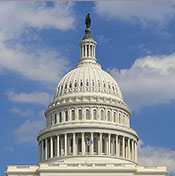 The AAG’s Redistricting Panel Series that took place this September aimed to answer the question, “What can geographers do to get involved in 2021 redistricting?” Thanks to geographers from around the country who stepped up as hosts and organizers, the AAG conducted 14 different virtual and in-person panels in as many states.
The AAG’s Redistricting Panel Series that took place this September aimed to answer the question, “What can geographers do to get involved in 2021 redistricting?” Thanks to geographers from around the country who stepped up as hosts and organizers, the AAG conducted 14 different virtual and in-person panels in as many states.
While some states have nearly finished their new district maps, many others are still in the middle of the redistricting process. Even among the completed maps, some have already faced legal challenges based on fairness and equity in representation. Public input is a crucial component of this process but taking the right steps to get involved proves difficult for most people. Join the AAG for a Redistricting Roundtable Discussion on Sat, Feb 26th at the NYC Annual Meeting as we reflect on our panel series and look forward to how geographers can stay involved in their states as district maps are drawn, reviewed, and challenged.
In the News:
- On Friday, Nov. 19, the House passed the Build Back Better reconciliation bill, 220-213, on a near-party line vote, with only Democratic Rep. Jared Golden of Maine joining all Republicans in opposing the measure. Negotiations continue in the Senate as the White House holds out hope for full passage by year’s end.
- On November 16, Representatives Diana DeGette (D-CO) and Fred Upton (R-MI) introduced the Cures 2.0 Act. In addition to authorization for Advanced Research Projects Agency for Health (ARPA-H), the Cures 2.0 Act includes the Research Investment to Spark the Economy (RISE) Act, legislation that would authorize relief funding for federal research agencies to help strengthen U.S. research in the aftermath of the COVID-19 pandemic.
- Throughout the end of 2021 and early 2022, the National Institutes of Health (NIH) will be holding a series of listening sessions to gather stakeholder feedback on achieving racial equity as part of the agency’s UNITE Initiative. The UNITE Initiative, which was launched by NIH in March 2021, is intended to analyze and address the agency’s practices to better foster diversity, equity, and inclusion in the biomedical research enterprise.
RESOURCES AND OPPORTUNITIES
Paid Positions: Be Part of the AAG Summer Series
The 2022 summer series will be the first of its kind for AAG. It is an expansion of the 2020-2021 Learning Series. The need for such a program beyond the pandemic became clear based on testimonies from the Learning Series, which is why the AAG Council re-committed support for another year and increased its budget.
With an increased program budget, and based on community input during the Learning Series and from an all-day event on September 10, we changed the format of this program in four major ways. First, the main audience for the series remains graduate students, but we are also developing a few offerings that will target recently graduated geographers in- or outside of academia, and a few undergraduate students. Second, we will continue having graduate-level advanced workshops, but we are also developing other offering types such as basic-level workshops, graduate-led working groups, and a seminar series. Third, we are collaborating with the AAG Affinity Groups for Graduate Students (GSAG) to offer informal graduate forums. Fourth, the series will happen throughout the summer months (May through August), rather than all year long.
We are seeking geography faculty and graduate students to submit proposals for workshops and for working groups (respectively). The call for proposals for the 2022 summer series remains open until Thursday, January 13, 2022.
Learn more.
Symposium on Hurricane Risk in a Changing Climate – Registration Open
Join scholars and practitioners in Key Largo, FL June 5-9, 2022 for the Symposium on Hurricane Risk in a Changing Climate. The main objective of this symposium is to foster communication among scientists, engineers, and practitioners in order to increase understanding of and better ways to deal with tropical cyclone risks. This Symposium differs from a traditional conference in that there is greater time allocated for each speaker to present and have Q and A in order to obtain greater depth to the discussion and there is a greater emphasis on networking to bring participants together for future collaborations.
Registration and more information available here.
Two Fellowships Available from the Society of Woman Geographers
The Society of Woman Geographers (SWG) invites applications for its Evelyn L. Pruitt doctoral dissertation research fellowships for 2022-2023 for women in geography and geographical aspects of other fields, as well as the Evelyn L. Pruitt National Minority Fellowship for 2022-2023 for minority women who have been admitted to and plan to enroll or are enrolled in a Masters program in geography or a related field. Applicants must be students in US or Canadian universities. Applications are due February 1, 2022. For more information, application guidelines, and details for submission of proposals see the Society of Woman Geographers website.
Geography Education National Implementation Project (GENIP) CHAIR SEARCH
The Geography Education National Implementation Project (GENIP) is a committee to support communication and collaboration regarding K-12 geography education by the four national geography organizations (American Association of Geographers; American Geographical Society; National Council for Geographic Education; and National Geographic Society). GENIP is conducting a search for a new Chair of the committee.
The Chair is responsible for coordinating and administrating the activities of the GENIP. Nominees should be knowledgeable about issues related to geography education, especially at the K-12 level. Preferred candidates will have experience with geography education, related policy issues, state and national standards, curricula, and assessments, and other cognate non-profit, educational organizations. This is a paid position lasting for a two-year term, which may be renewed. For a full description, responsibilities, and details on how to apply, click here.
Request for Proposals for Entrepreneurship Researchers Opening Jan. 18, 2022
This January, the Ewing Marion Kauffman Foundation will launch the 2022 Kauffman Knowledge Challenge Request for Proposals (RFP). The goal of this RFP is to support research that improves our understanding of entrepreneurship and generates practical, actionable, and rigorous evidence to inform decision-making and change systems. There are two focus areas that applicants will be asked to choose from: Systems and structures to support inclusive prosperity, which will explore the infrastructure needed to support entrepreneurs and entrepreneurship, and Equitable opportunities and the future of work, which will explore how entrepreneurial activity might be structured as the economy emerges from the COVID-19 pandemic. Research findings will be shared with entrepreneurs, entrepreneurial support organizations, community leaders, and policymakers. The RFP opens Jan. 18, 2022 and closes Feb. 28, 2022.
More information about this RFP is available here.
Redistricting Data Hub Opportunities
The 2021 redistricting cycle is at the halfway mark, and it’s not too late to get involved! If you were inspired by one of the AAG Redistricting Panel Series, check out the nonpartisan Redistricting Data Hub for free, high-quality data that can be used for analysis, as well as free trainings on how to analyze maps for consideration of COIs and racially polarized voting (RPV) analyses.
If you have an idea for a training or a group that might be interested, or any redistricting-related question, email the Hub’s Help Desk. Among other activities, the Redistricting Data Hub is currently collecting all submitted community of interest (COI) maps to make publicly available in a database to facilitate analysis, learn more here.
GEOGRAPHERS IN THE NEWS
EVENTS CALENDAR
Submit News to the AAG Newsletter. To share your news, email us!
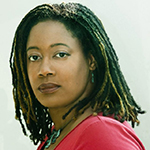

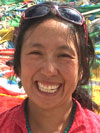
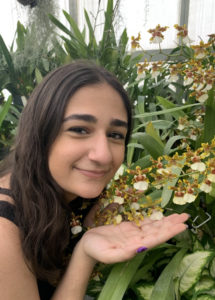
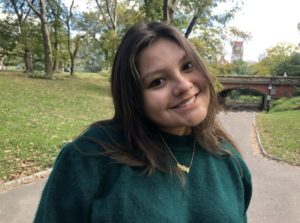
 Are you searching for that perfect job candidate? Are you looking to land a great internship or find your dream job? For the first time, the AAG will be holding a virtual career fair during the Annual Meeting. Employers and Job Seekers will have the opportunity to connect on February 28
Are you searching for that perfect job candidate? Are you looking to land a great internship or find your dream job? For the first time, the AAG will be holding a virtual career fair during the Annual Meeting. Employers and Job Seekers will have the opportunity to connect on February 28
 The Annals of the American Association of Geographers is seeking contributions for a Special Issue on the topic of Networks to be published in 2024.
The Annals of the American Association of Geographers is seeking contributions for a Special Issue on the topic of Networks to be published in 2024.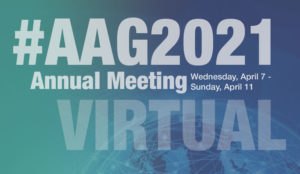 AAG has been closely monitoring the latest information surrounding COVID-19, and considering its effect in relation to our annual meeting scheduled for February 25 – March 1, 2022. After conferring with AAG Council, leadership and staff, we have made the decision to convert AAG2022 to an entirely virtual event.
AAG has been closely monitoring the latest information surrounding COVID-19, and considering its effect in relation to our annual meeting scheduled for February 25 – March 1, 2022. After conferring with AAG Council, leadership and staff, we have made the decision to convert AAG2022 to an entirely virtual event. 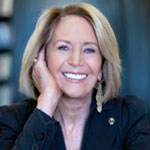 Geophysicist Marcia McNutt,
Geophysicist Marcia McNutt,

 The most recent issue of
The most recent issue of